Key Takeaways
- Ant wars are triggered by territorial disputes, food competition, colony defense, or rival queens.
- Ants use tactics like swarming, chemical signals, mandible combat, and decoys during fights.
- Ant aggression peaks in warm months when colonies expand and compete for resources.
- Frequent ant battles near your home may signal infestations and potential structural damage.
- Prevent problems by keeping areas clean, sealing entry points, reducing moisture, and using professional pest control if needed.
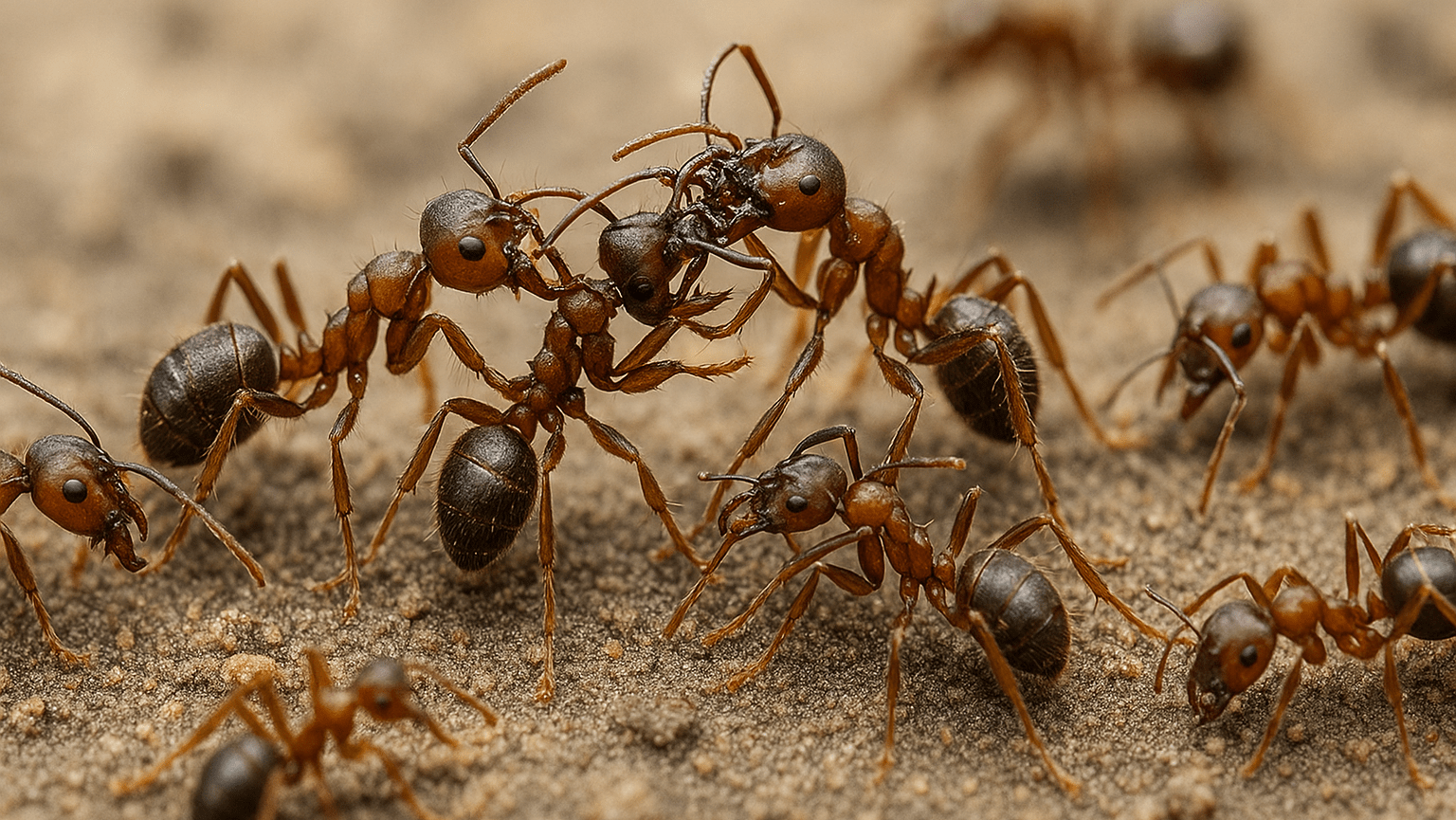 Have you ever watched ants marching peacefully only to see a tiny battle erupt suddenly? It’s pretty fascinating—and maybe a little surprising. What happens when these small creatures fight?
Ants are social insects that live in complex colonies, but despite their cooperative nature, they frequently engage in battles. You might not expect it, but ants are incredibly competitive. These conflicts, often termed “ant wars,” occur for various reasons, including territory disputes, competition for resources, and colony defense.
While humans wage wars for political or ideological reasons, ants fight for survival. Their battles can be intense, involving thousands of individuals in strategic combat.
This article explains why ants engage in battles, highlighting the reasons behind their aggression, their tactical combat strategies, and the ecological significance of these conflicts. It also provides practical tips for preventing ant infestations and managing ant issues at home effectively.
Concerned your home might become an unintended battleground for ants? Schedule your Free Pest Inspection Today! Our experts can quickly spot hidden ant colonies and provide solutions to keep your property pest-free.
Have you ever watched ants marching peacefully only to see a tiny battle erupt suddenly? It’s pretty fascinating—and maybe a little surprising. What happens when these small creatures fight?
Ants are social insects that live in complex colonies, but despite their cooperative nature, they frequently engage in battles. You might not expect it, but ants are incredibly competitive. These conflicts, often termed “ant wars,” occur for various reasons, including territory disputes, competition for resources, and colony defense.
While humans wage wars for political or ideological reasons, ants fight for survival. Their battles can be intense, involving thousands of individuals in strategic combat.
This article explains why ants engage in battles, highlighting the reasons behind their aggression, their tactical combat strategies, and the ecological significance of these conflicts. It also provides practical tips for preventing ant infestations and managing ant issues at home effectively.
Concerned your home might become an unintended battleground for ants? Schedule your Free Pest Inspection Today! Our experts can quickly spot hidden ant colonies and provide solutions to keep your property pest-free.
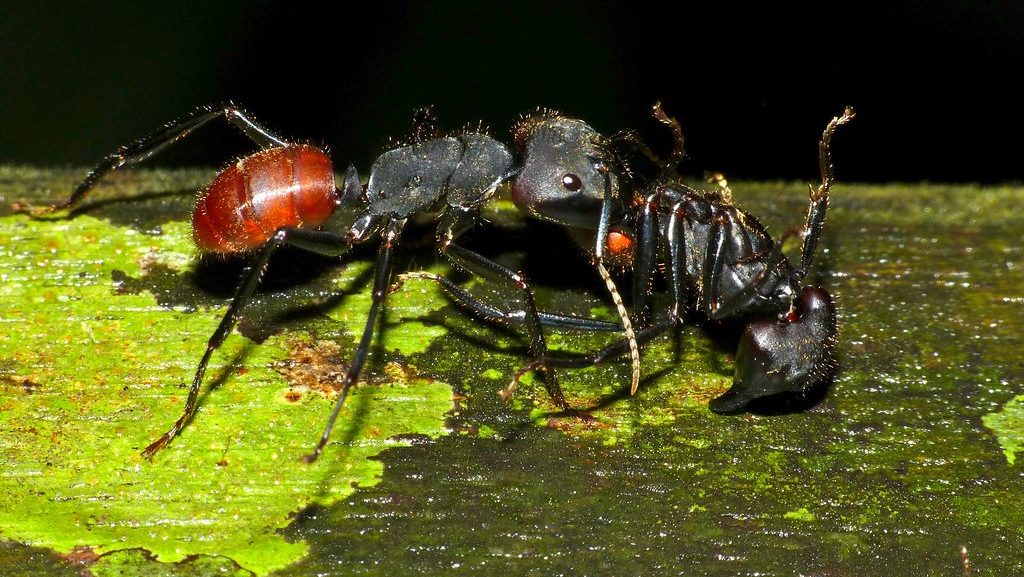

Not getting a solution?
Get your free pest control estimate today!Do Ants Go to War?
Ants are territorial, just like we are when protecting our homes. Have you ever noticed ants facing off on your patio or driveway ?Yes, ants go to war, and their battles can be just as destructive as human conflicts. In the “ant world war,” rival colonies fight to protect or expand their territory. These wars can last for days or even months, with thousands of casualties on both sides. Unlike human conflicts, ants do not negotiate peace treaties. Instead, the stronger colony either wipes out the weaker one or forces survivors to flee. Different ant colonies—even those from the same species—often battle over turf. If you feel things have gone out of control, it is advised to contact pest control professionals. Our team can provide a customized approach to protect your home effectively.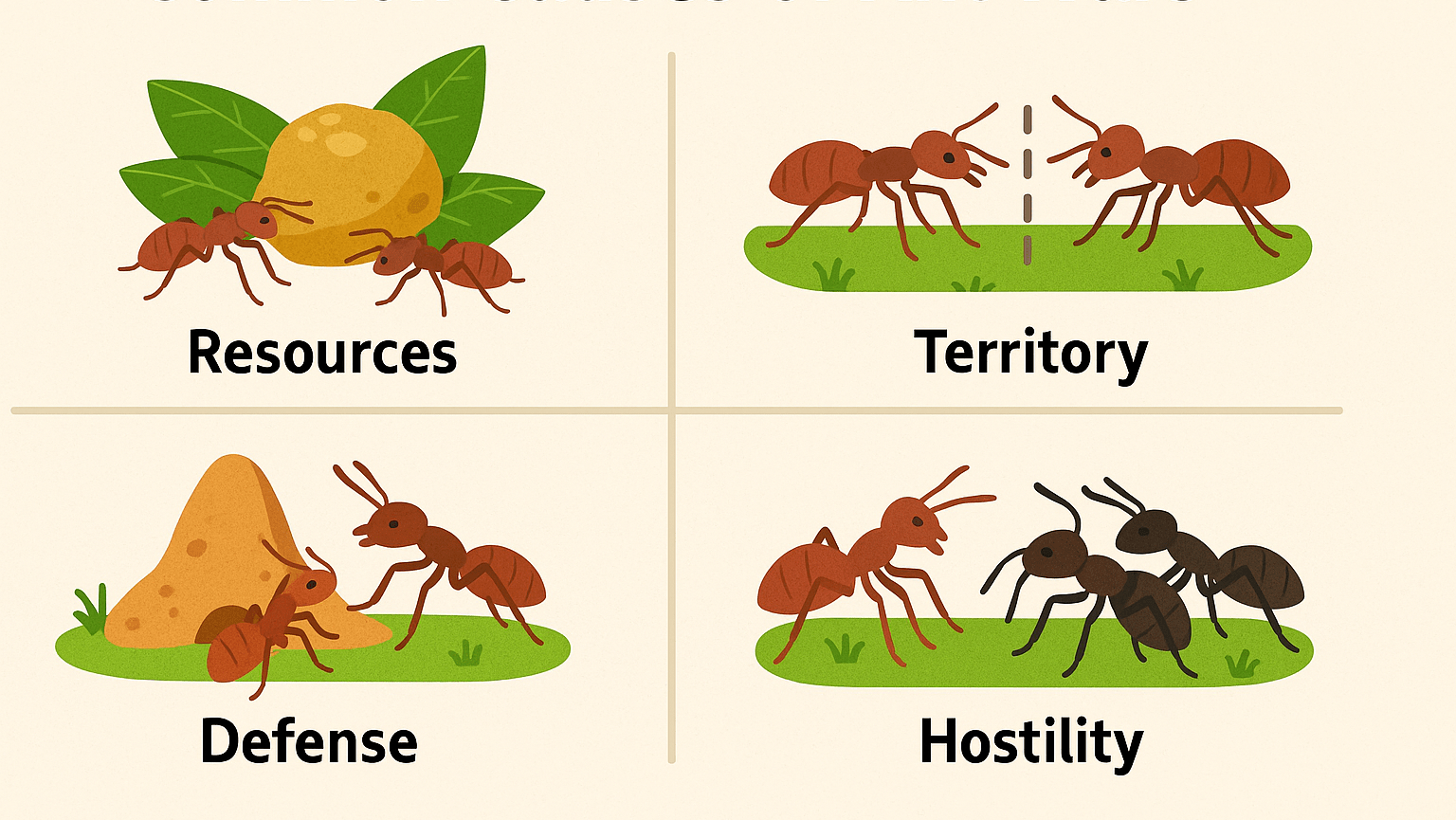
Common Causes of Ant Wars
-
Territorial Disputes: Colonies fight to establish dominance over a specific area. Some species invade and take over other colonies.
-
Food Competition: When resources become scarce, ants battle over access to food. Sweet spills and leftover crumbs become battle hotspots.
-
Colony Defense: Ants fiercely guard their queen, larvae, and stored food from intruders.
-
Queen Rivalry: In polygynous colonies, rival queens may compete for control.
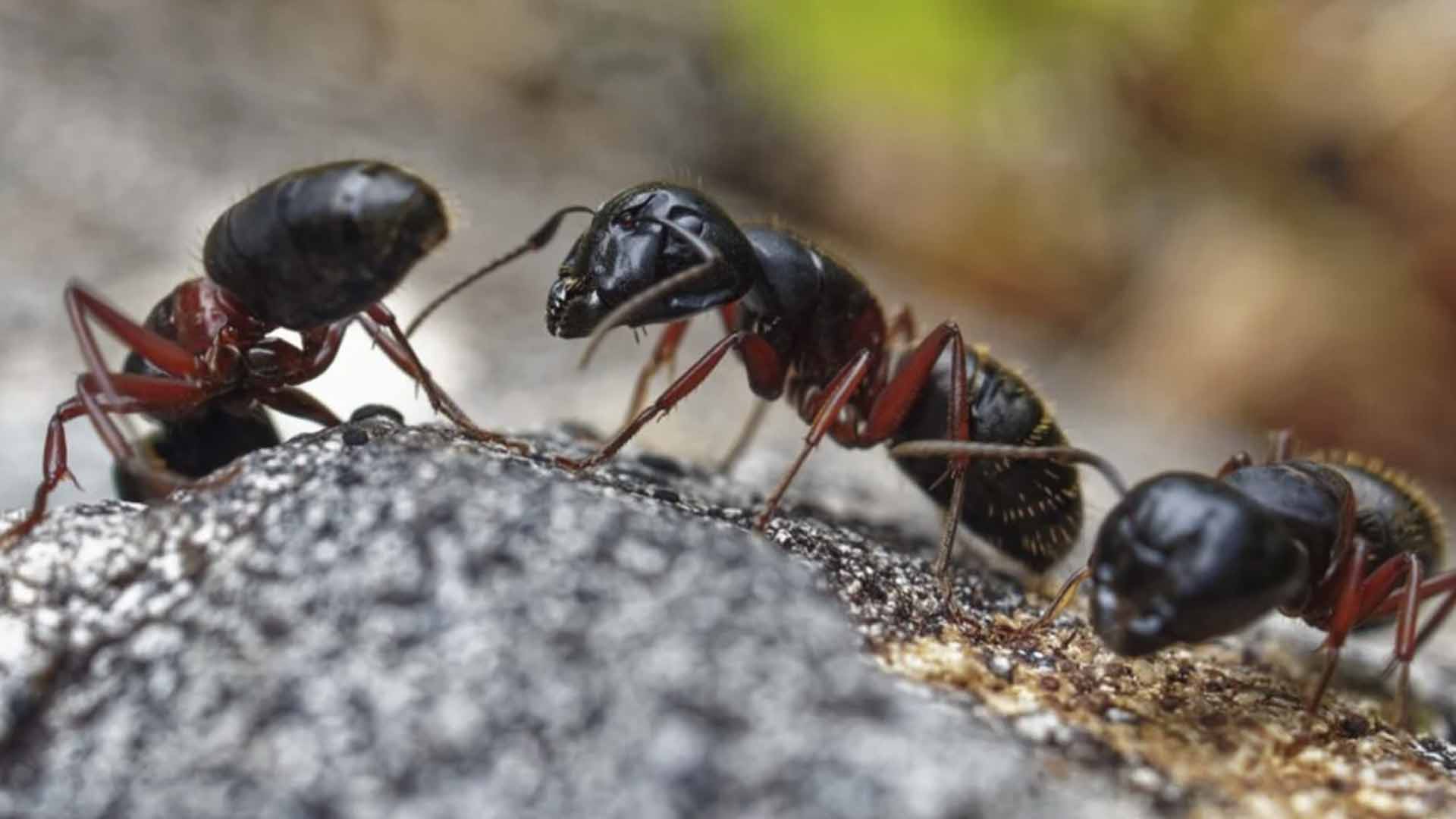
Resource Competition
- Ant battles aren’t random outbursts. They’re carefully planned conflicts over essential resources, such as food and water. Have you ever spilt a sugary drink and watched ants swarm around it? For ants, even tiny crumbs are precious treasures.
Here’s why:
-
Food Scarcity: In times of drought or cold, food becomes limited—forcing ant colonies to compete more aggressively over every crumb.
-
Survival Instinct: Securing food and water is vital for a colony’s survival, development, and reproduction, making these resources worth fighting for.
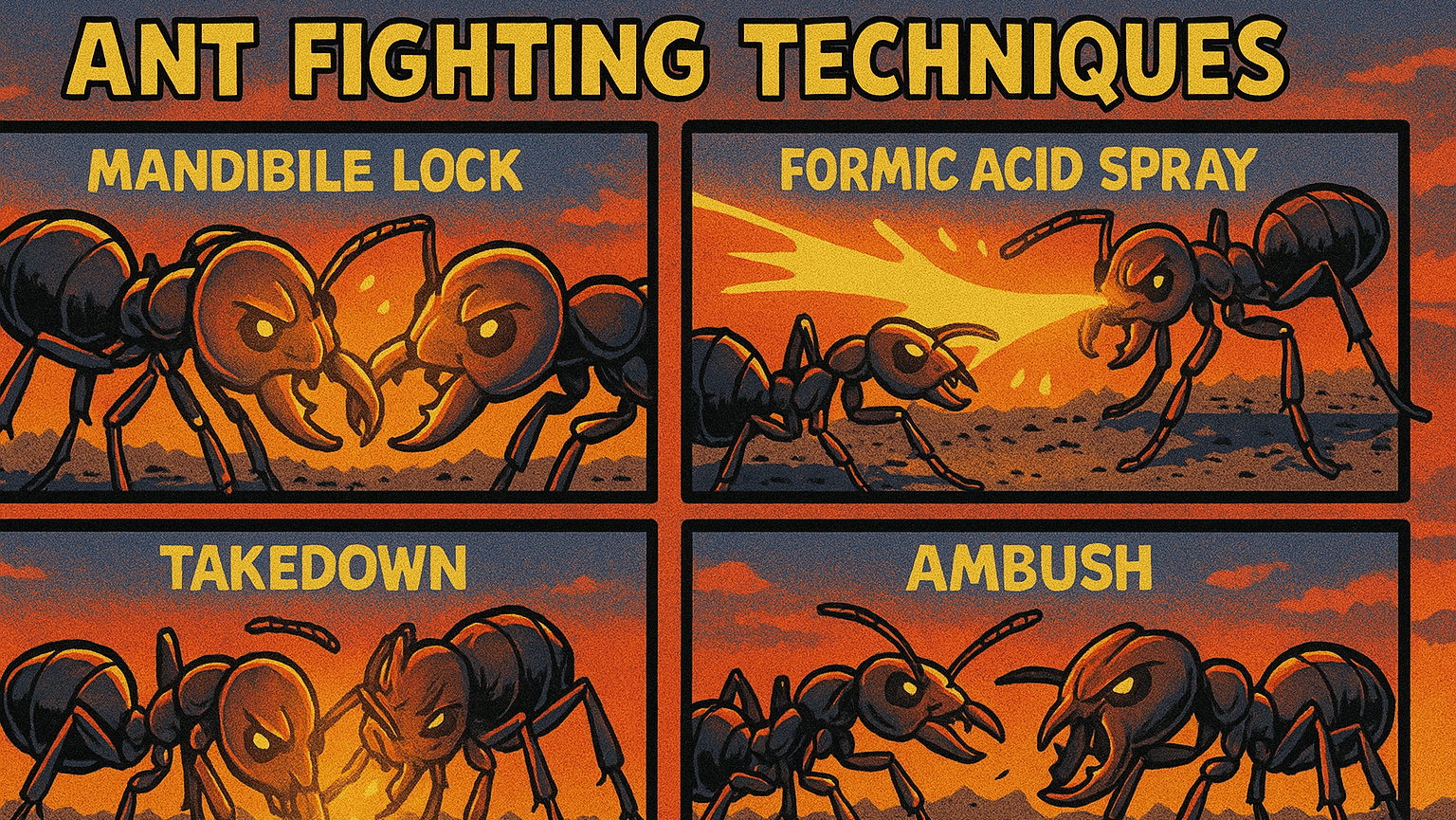
How Do Ants Fight?
Ant battles involve organized and tactical strategies. Ants do not randomly attack but rather use techniques designed to outnumber or outmaneuver the enemy.Fighting Tactics Used by Ants
-
Swarming Attacks: Large groups of ants overwhelm opponents with sheer numbers.
-
Chemical Warfare: Some species spray formic acid to incapacitate their enemies.
-
Mandible Combat: Ants use their strong jaws to crush or cut opponents.
-
Decoy Tactics: Some ants send smaller groups to lure enemies into a trap.
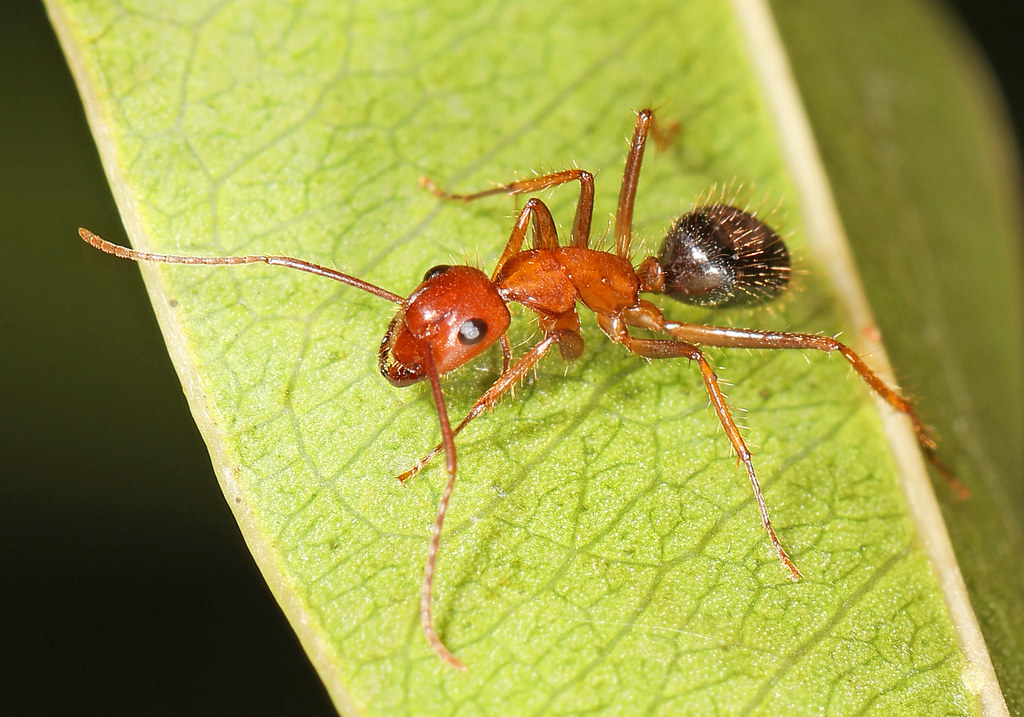
Ant Species Rivalries: Natural Enemies
- Imagine neighbors who constantly argue because their lifestyles don’t match—ants are similar:
-
Aggressive Fire Ants: Known for their rapid, coordinated attacks, fire ants are highly territorial and often initiate conflict when their space is invaded.
-
Defensive Carpenter Ants: Generally passive, carpenter ants defend their nests fiercely when provoked, especially against aggressive invaders like fire ants.
Are Ants Aggressive?
Not all ants are aggressive, but many species exhibit high levels of aggression when defending their territory or colony. Some ants, like army ants and fire ants, are naturally more hostile and will attack anything that threatens their nest. Even non-aggressive species will become defensive if provoked.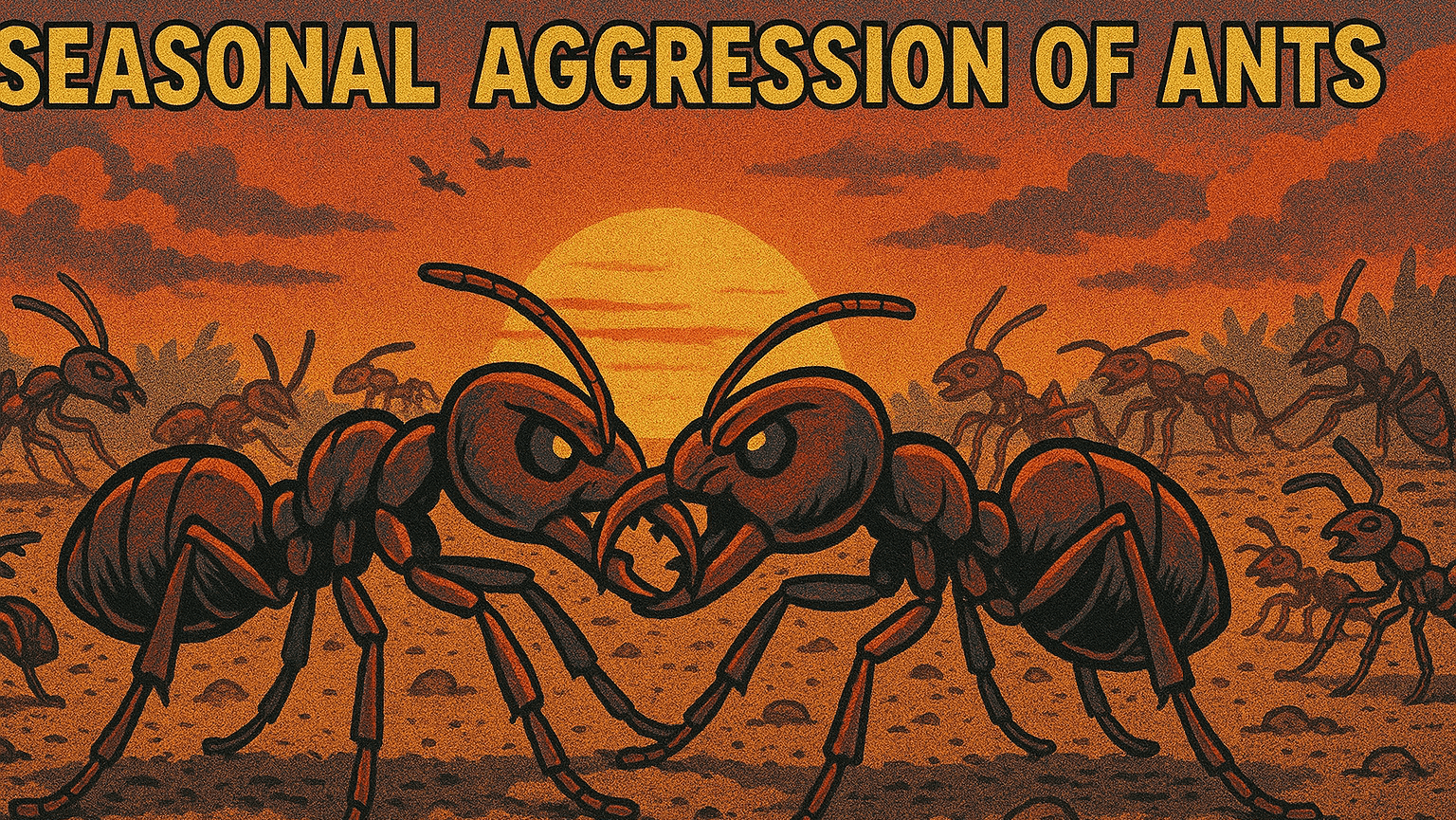
Seasonal Aggression Among Ants
- Ant aggression tends to peak during spring and summer. Why? Warm weather means ants are busier—they’re expanding colonies, foraging for food, and claiming new territories. More activity naturally leads to more conflicts.
-
Population Growth: Spring and summer trigger colony expansion, leading to more ants and more frequent encounters with rival colonies.
-
Territory Expansion: Ants actively search for new nesting and foraging grounds in warm months, often leading to territorial clashes.
Should You Worry About Ant Battles?
- Seeing ants battle might seem harmless, but frequent fights signal deeper problems. Regular conflicts indicate multiple strong colonies near your home, raising concerns about potential invasions.
-
Structural Damage: Carpenter ants, if involved, may be tunneling through wood—causing hidden but costly damage to walls, decks, or furniture.
-
Increased Infestations: Repeated sightings of ant fights suggest multiple nearby colonies, increasing the risk of indoor invasion and ongoing pest issues.
Do Ants Have Wars Within Their Own Colony?
Surprisingly, ants also fight within their own colonies in certain situations. This usually happens when there are multiple queens competing for dominance or when worker ants eliminate weaker or injured members.Examples of Intra-Colony Battles
-
Queen Ant Conflicts: In multi-queen colonies, dominant queens may kill rivals.
-
Worker Culling: Weaker ants are sometimes expelled or killed to maintain colony efficiency.
-
Infighting Over Resources: If food is limited, worker ants may turn against each other.
How Ant Wars Impact the Ecosystem
While ant wars may seem brutal, they play an essential role in the ecosystem. These conflicts help regulate ant populations and prevent any one species from dominating an area. They also contribute to natural selection, ensuring that only the strongest colonies survive.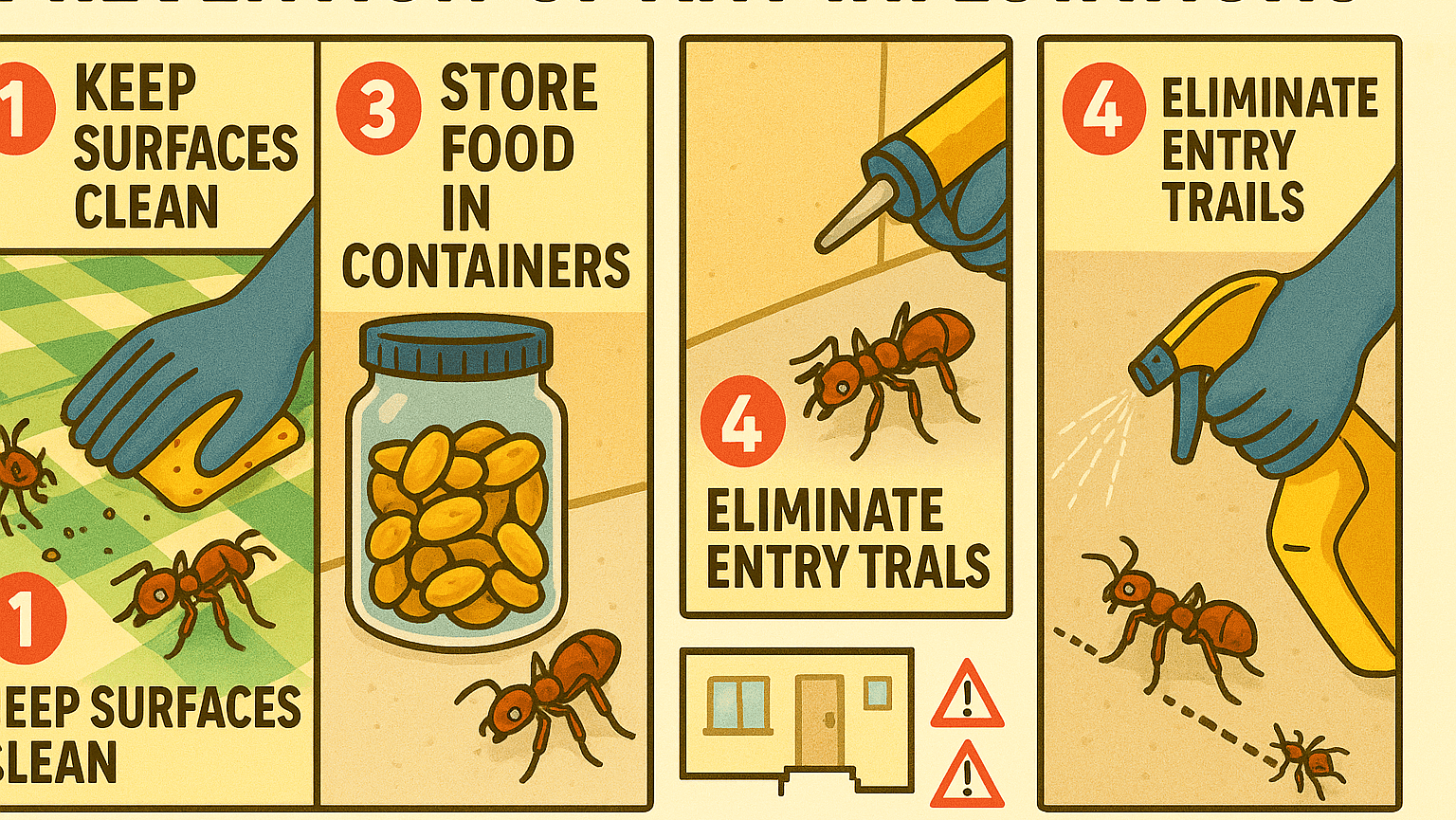
Tips to Prevent Ant Infestation
-
Keep your kitchen clean by wiping crumbs, spills and storing food in sealed containers.
-
Regularly inspect and seal gaps, cracks and entry points around doors, windows, and walls.
-
Eliminate moisture by fixing leaks, damp areas quickly. and ensuring proper ventilation. Ants, particularly carpenter ants, love moisture-rich spaces.
-
Use natural deterrents like vinegar, lemon, or peppermint oil.
-
Regularly clean food areas, sweep floors. Dispose of garbage regularly and keep trash bins tightly sealed.
-
Keep your outdoor areas tidy. Trim vegetation and remove debris to discourage ant colonies.
-
Persistent ant issues may require professional pest control to identify and eliminate hidden colonies.





